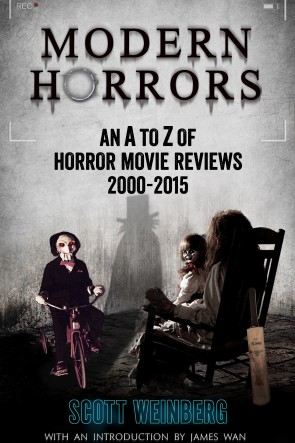Retro Review: MAMA (2013){0}
When it comes to the films he produces but does not direct, Guillermo Del Toro seems to enjoy helping young filmmakers to create “old-fashioned” genre films. Films like The Orphanage, Julia’s Eyes, Don’t Be Afraid of the Dark, and even Splice (to a point) seem to hearken back to an earlier era in which scares were classier, plots were simpler, and audiences were a lot more open to bumps in the night and playful chills. The producer’s latest effort, an intermittently effective horror thriller called Mama, fits squarely among those other projects: it has a basic premise that won’t win many awards for originality, but there’s an attention to detail, several quiet moments of effective eeriness, and just enough earnest intent to push the flick across the finish line.
That’s not to say that Andres Muschietti’s Mama doesn’t have a few shortcomings, but I’ll take an old-school “creepy” thriller that aims for some class over yet another “stalker” flick in which the only important thing is the formula. Mama is a mixed bag, at best, but its finest moments are actually pretty decent.
What begins like a standard “killer kids” flick about a young couple taking charge of two feral little girls who have lived in the woods for five years slowly becomes something just a little more interesting: it seems that little Veronica and Lilly were not completely alone out there in the forest. Not only were the young girls cared for by a supernatural “mama” of some sort, but their ethereal guardian has followed them to their new home. And let’s just say she’s not in the mood for joint custody.
Following a clunky prologue and some rather dry set-up, Mama does settle into a quiet groove in Act II, which is when reluctant surrogate “Mama” Annabel (Jessica Chastain) and her boyfriend Jeff (Nicolaj Coster-Waldau) try to decide if they’re up to the challenges set forth by his creepy little nieces. The screenplay also gets some decent mileage from a subplot about a psychiatrist (Daniel Kash) who may or may not have the girls’ best interests in mind, and many of the technical aspects are quietly impressive. (The score by Fernando Velasquez is a particular highlight.)
Unfortunately there are hiccups galore in the screenplay department, and the problems all come to a head in a third act that feels schizophrenic, at best, and re-cut to ribbons, at worst, during a hasty post-production session. Two of the film’s most interesting characters simply vanish; Annabel becomes less sympathetic with each passing scene; and the monster, which was presented with some calmness and subtlety for most of the film, wanders all across the screen and more or less demolishes its own scariness with each passing moment. Some of the problems stem from the fact that Mama was once a three-minute short that is now a 99-minute feature, but the overt choppiness of the film’s final third speaks to problems with test audiences or perhaps the MPAA ratings board.
Despite the aforementioned issues, there are quite a few components that the intrepid horror fans may enjoy. (One sequence involving Annabel, the girls, and two open doorways is wonderfully simple and effective, and the young ladies playing the formerly feral sisters are quite excellent.) It’s just that Mama offers, at most, a handful of worthwhile assets, and unfortunately they never manage to congeal into a completely satisfying whole.








